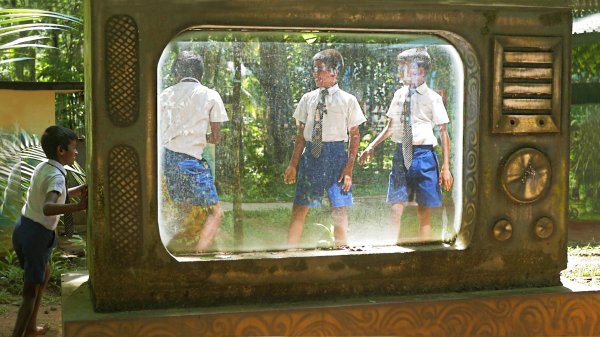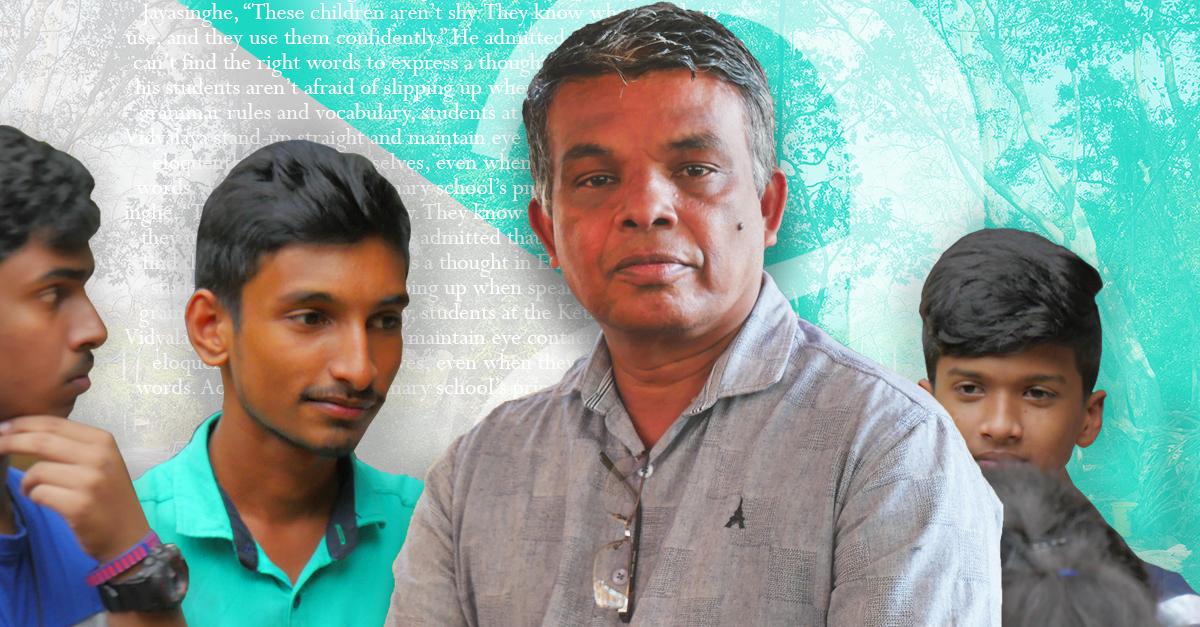
Just past the small town of Kosgolla in the Kurunegala district of the Central province is a small village school nestled in the valley that runs alongside the Belgoda Mountain range.
Reaching the school is not easy: you have to take the southern road from Kurunegala towards Ambepussa, turn left at Dambokka and drive until you reach Kosgolla, where you take a left past a temple, and follow a road flanked by two rocks running through the valley, until you reach the school.
The drive there is a long and laborious, requiring frequent disembarkation to navigate through gaps far too narrow for an ordinary vehicle. Paddy fields and forests to our right and a sheer rock to the left, make our journey to the Ketawala Kanishta Vidyalaya an exercise in perseverance and endurance.
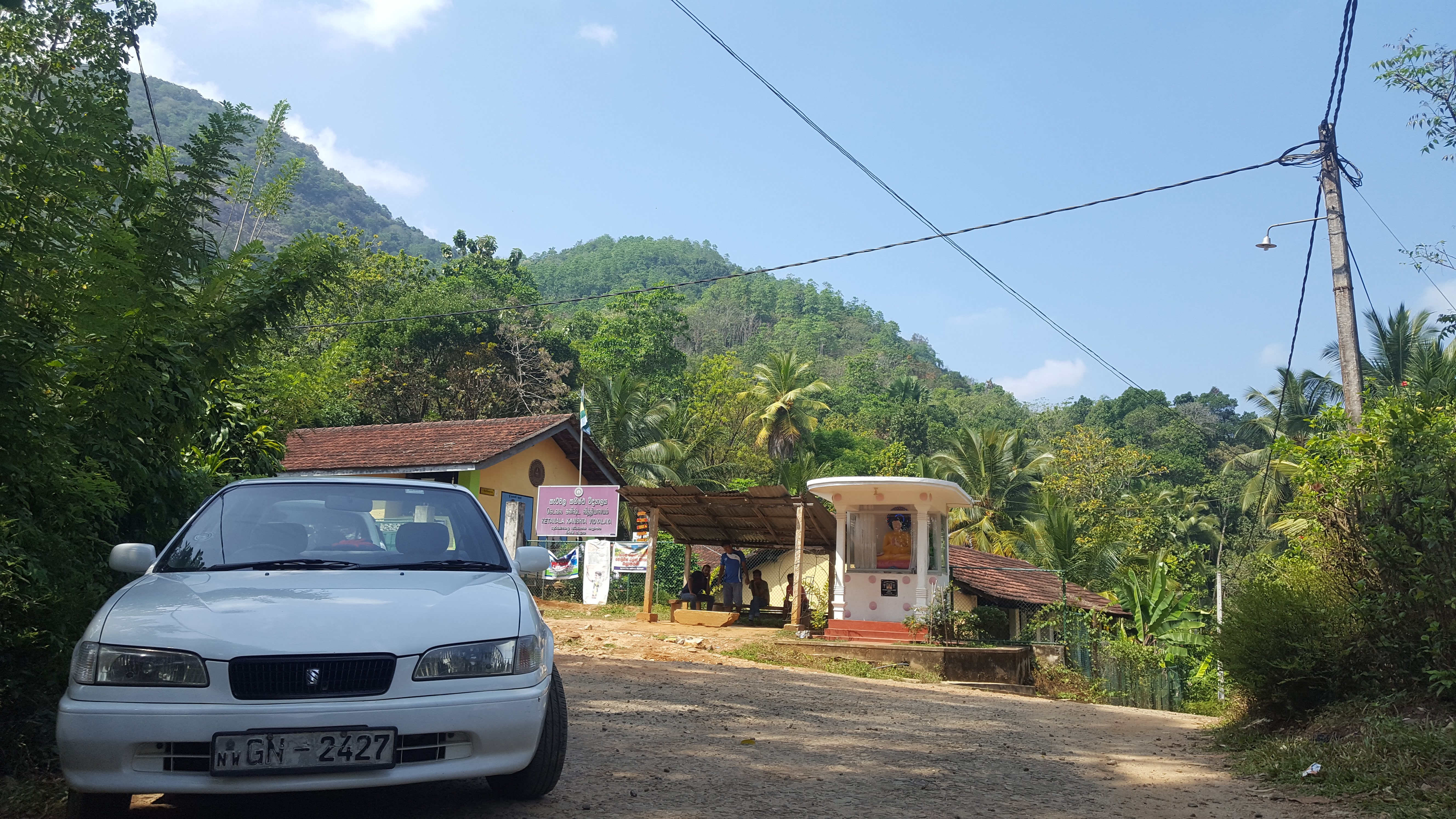
The rural primary school is quaint and unassuming, and serves the children of the families in the villages that dot the Belgoda valley, where most residents engage in agriculture. Two Transport Board (CTB) buses and one private bus reach it the school daily, but it is otherwise a few kilometres walk to the nearest main road. And while the majority of the teachers take the bus (others travel on motorcycles) most children walk to school.
With neglected roads dotted with foot-deep potholes and steep slopes to clamber over to reach the school, Ketawala Kanishta Vidyalaya is far from accessible. But as you near the school, the most unexpected thing can be heard—the hum of conversation in fluent English.
Learning English
Ketawala Kanishta Vidyalaya’s proficiency in English is the result of a unique language programme designed by its former English teacher, Wilbert Ranasinghe (58), who believed in using conversations to build vocabulary and improve eloquence.
“We would come to school at 4:45 am,” a 16- year- old student of the school told Roar Media. “Sir would be waiting there, and would ask us to chat with each other.”
Ranasinghe’s replacement at Ketawala KV, Sinhala teacher Sumitha Chandrasiri continues his practice. “I usually give the children a topic to talk about, and a few minutes for them to discuss it amongst themselves,” he said. “This morning, for example, we did ‘Did you know?’ facts. Tomorrow we might do TV programmes, or something like that. The idea is for the students to talk to each other.”
Chandrasiri also tries to keep children interested in the language with games. A student studying for her O/Level exams told Roar Media, “We play games like ‘Onion Rings’ and ‘The Guessing Game’. In ‘Onion Rings’, we stand in two circles and talk about a topic given by the teacher with our partner, but I prefer ‘The Guessing Game’ because you have to try and figure out what the other students are thinking.”
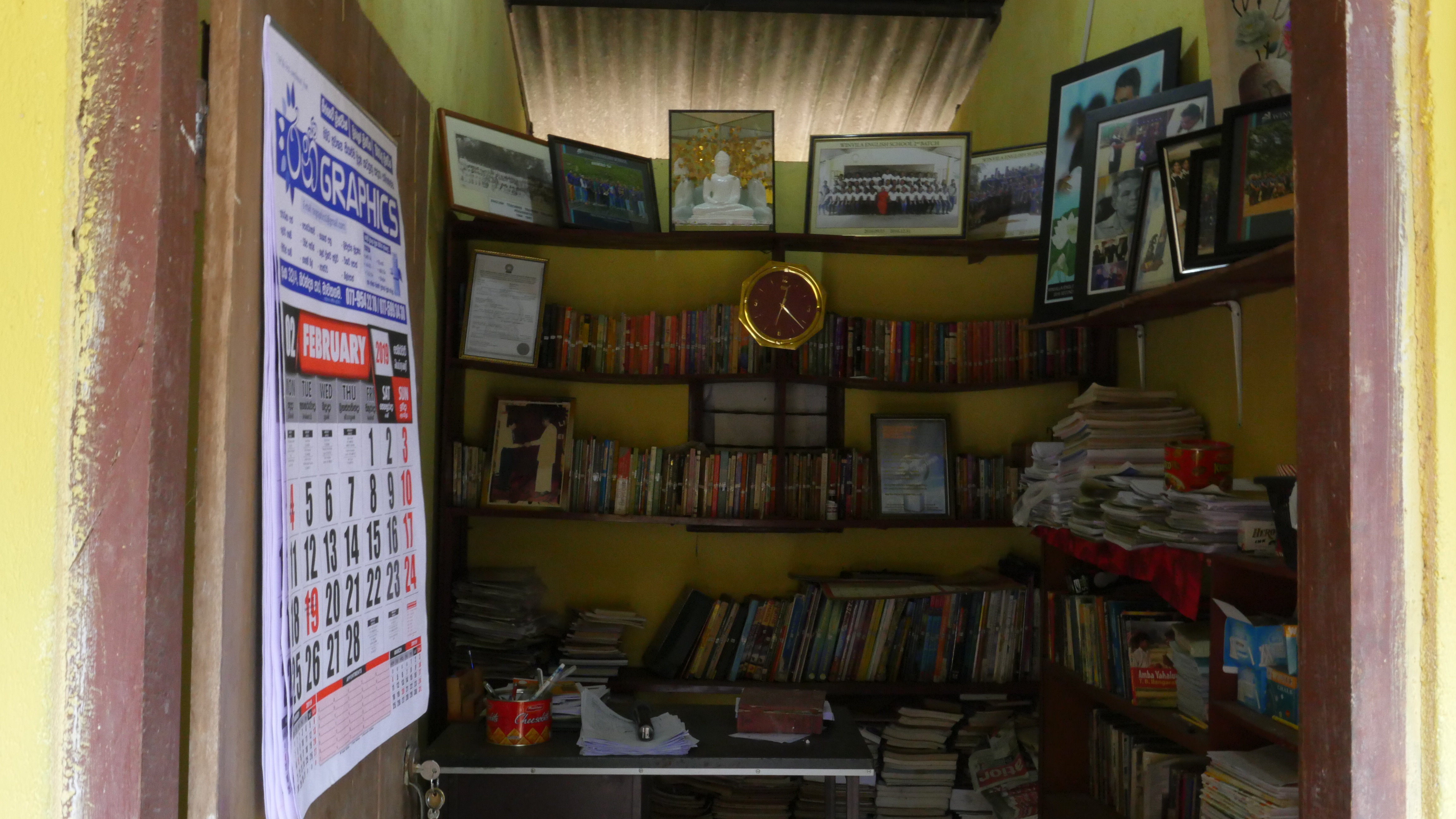
Ranasinghe’s former students say he would only speak to them in English. “Sir prohibited us from speaking Sinhala in class,” a 16-year-old student told us. “Because of that, we would always speak English at school, even with our friends and other teachers.”
Ranasinghe was also big on discipline. Aside from grammar and vocabulary, his students at the Ketawala Kanishta Vidyalaya were taught to stand up straight and maintain eye contact with the people they are conversing with, and eloquently express themselves in conversation.
“These children aren’t shy, said the primary school’s principal N. S. D. Jayasinghe. “They know what words to use, and they use them confidently.” He admitted that even while he sometimes found it difficult to find the right words to express a thought in English, his students weren’t afraid of trying new words.
After 16 years at the Ketawala Kanishta Vidyalaya, Ranasinghe retired 2016, and now gives English tuition classes at his home near Mawathagama, Kurunegala. When Roar Media visited his home—where students ranging from high schoolers to a young Buddhist monk assembled—the class was playing a version of the game Onion Rings.
“Today I told them: ‘Imagine it is your class teacher’s birthday. There are five things you can give her. Describe which one you choose and why you chose it over the others,’” Ranasinghe told us. “With this exercise, students not only speak, but practise giving explanations for their answers.”
Despite the financial security of his pension, Ranasinghe is keen to continue giving private tuition classes to help people learn English. “In Grades 6–8 I hated English, because we just learnt from the textbooks,” he said, explaining that things changed when he was assigned a teacher who interested him in the subject.
“When I became a teacher, I [too] wanted to do something different,” he said. “This method of encouraging the children to talk to each other seemed like a natural way to teach the language, so I just tried it.”
Ranasinghe, who first introduced his language programme to students in 1982 has since worked to develop and perfect it. “Everything is in English these days,” he said. “To live and work in the city and around the world, you need to know English.”
Speaking English
Those who seek Ranasinghe’s help also believe that mastery of the English language is important to broadening their horizons and creating more opportunities.
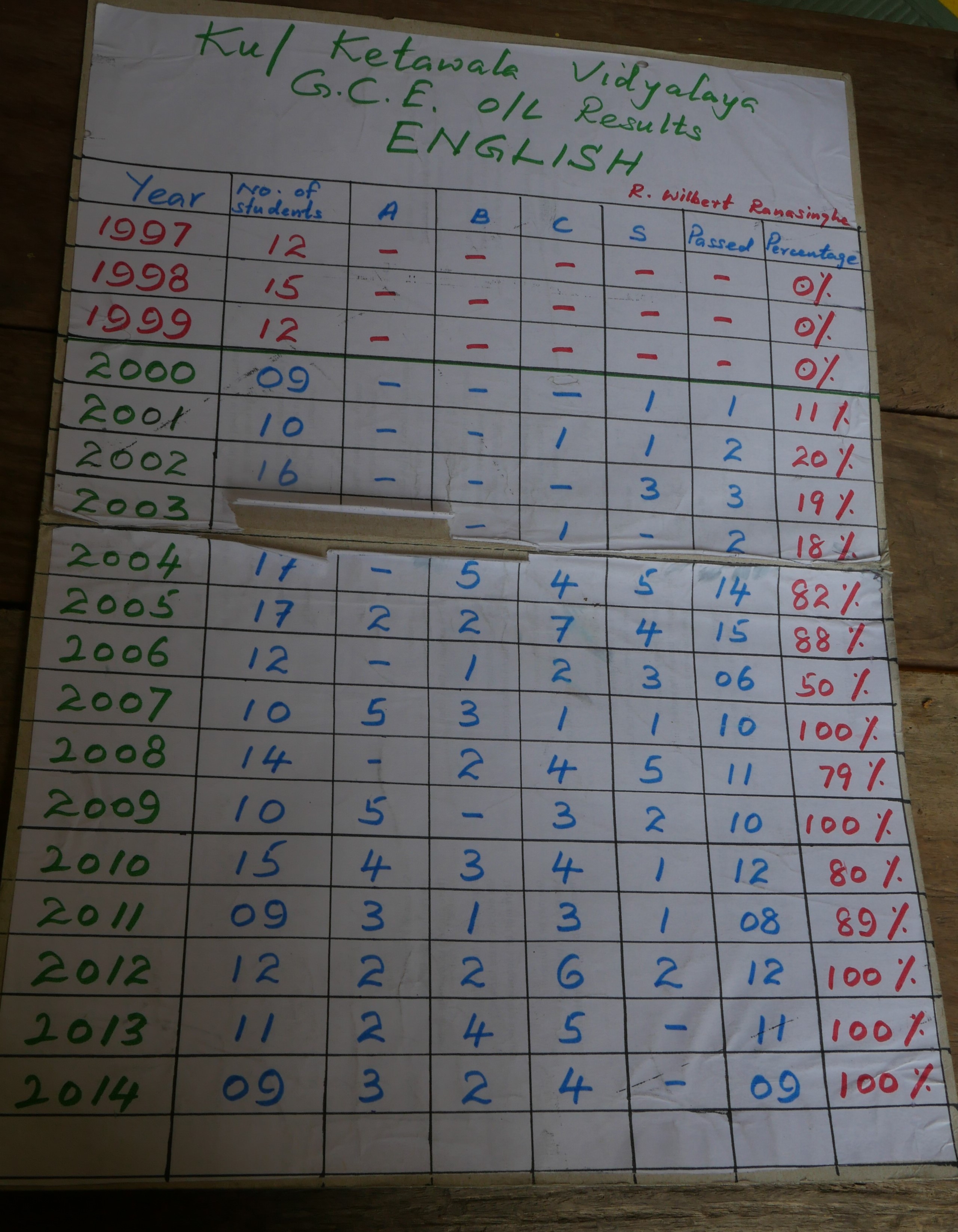
A student studying for her A-Levels who is taking extra classes with Ranasinghe explained her reasons why: “I want to see the world,” she said. “Learning English will help a lot if I go abroad.”
Ranasinghe’s daughter, 27-year-old Suvimali, who was never formally taught by her father but attended his classes as a child, said her background in English helped her with her physics degree and opened up to her a world of English books, films, and music.
“My favourite books are the Harry Potter series,” she said. “I bought the whole set when I was in grade six or seven.”
Despite her degree in physics, Suvimali—whose favourite musician is Taylor Swift—is a keen singer, and her background in conversational English helps with an intuitive feel for English on-screen dramas: “I hate watching films with the subtitles on because it distracts from the scene,” she said with a laugh.
Ketawala KV has also felt the impact of Ranasinghe’s expertise, with O/Level English results improving impressively since he introduced his language programme. “Seventy per cent of our students passed their English O/Level exam last year,” Principal Jayasinghe told us. Before Ranasinghe joined, the majority of the school’s students failed their English paper, but school record showed that rates rose steadily to 100% since the year 2000—the year Ranasinghe joined the school, before plateauing at 70% at his retirement.
Ranasinghe credits his passion for teaching children as the reason for his success. “If a teacher loves their children, they will learn well,” he said. “The children need to trust that the teacher wants the best for them, and then they will respect the teacher and put effort into learning. These kids love me very much.”








